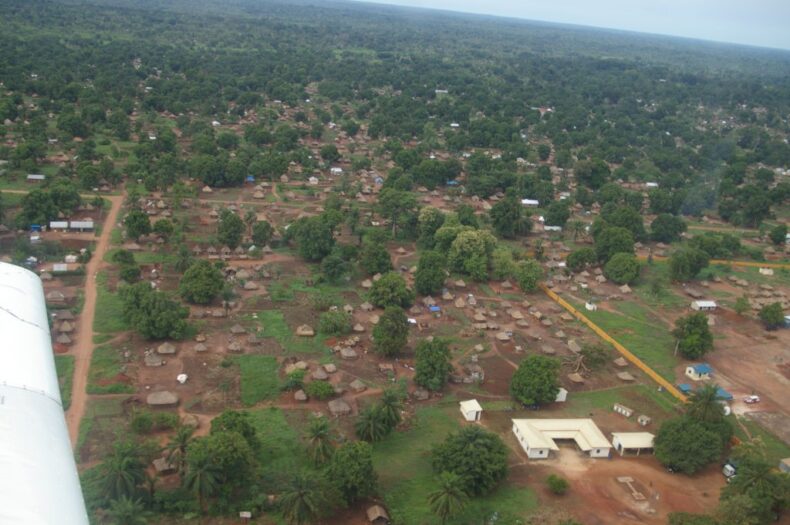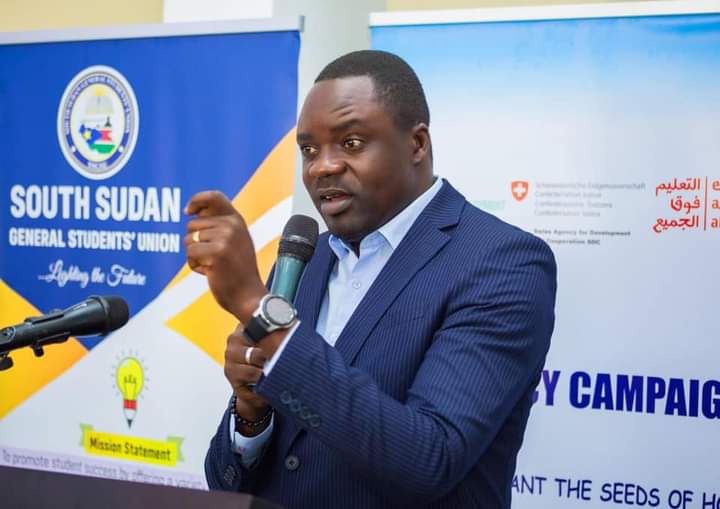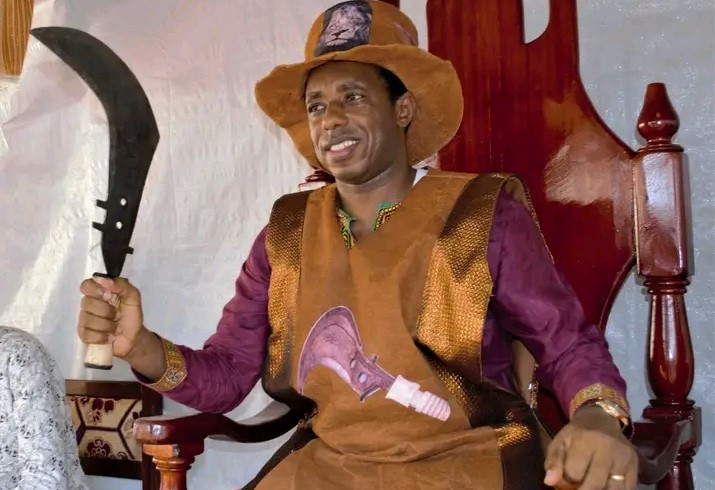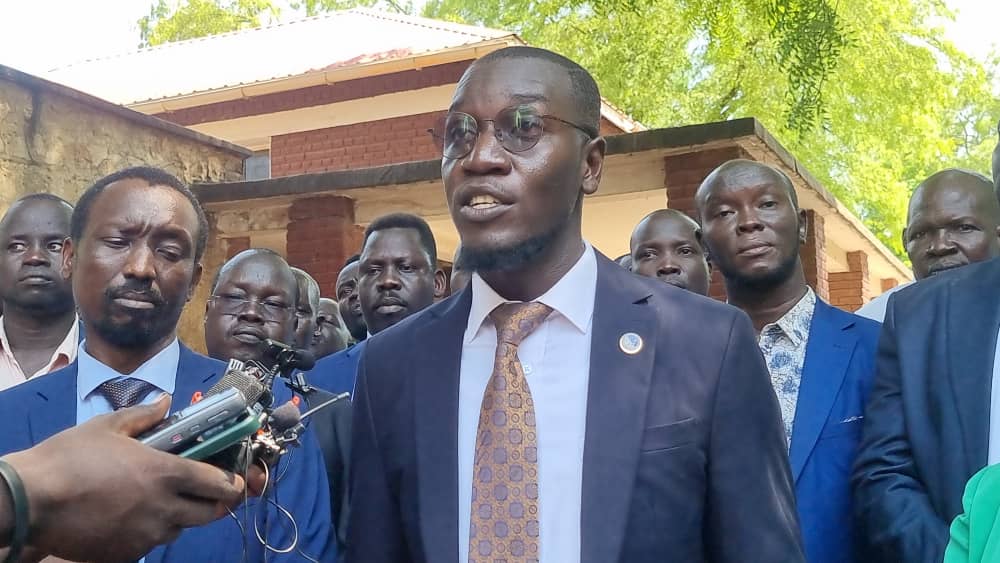Bahr el Ghazal elders must be tasked to end Dinka Ngok and Twic conflict

The leadership of South Sudan must immediately do something tangible to call off unnecessary bloodshed between the Dinka Ngok and Twic Mayardit communities of the Greater Bahr el Ghazal region.
The ongoing conflict between two communities deserves greater attention from the leadership of the R-TGoNU and a set-up elderly lead committee to rescue the situation on the ground rather than an inept and politically-motivated learning committee.
The ongoing communal violence over the land of Aneet and Agok between two brotherly communities has increased polarisation, which seems to be unabated by the unseen hands of political actors.
This is a defining moment for Dinka Ngok and Twic Mayardit to unconditionally reconcile for the sake of peace and stability in greater Bahr el Ghazal and South Sudan at large.
There is nothing more dangerous than being used as pawns by politicians on both sides of a conflict, especially the youth who kill each other heartlessly.
As one of the concerned South Sudanese citizens over this uncalled-for internal conflict, I wish both parties in conflict would reflect on the fable of two goats.
Once upon a time, over a river, there was a very narrow bridge. One day, a goat was crossing this bridge and met another goat just in the middle of the bridge. There was no room for them to pass.
“Go back,” said one goat to the other, “There is no room for both of us”. “Why should I go back?” said the other goat. “Better you must go back.” “You must go back”, said the first goat, “because I am stronger than you.” “You are not stronger than I”, said the second goat.
“We will see about that”, said the first goat and he put down his horns to fight.
“Stop!” said the second goat.
“If we fight, we shall both fall into the river and be drowned and instead I have a plan. I shall lie down and you may walk over me.”
Then the wise one lay down on the bridge and the other goat walked highly over him. “We shall see about that.” “We shall see about that,” said the second goat. “We shall both fall into the river and they crossed the bridge comfortably and went on their ways.
This fable of two goats should be reckoned with by brothers and sisters of Abyei and Twic Mayardit to avoid unnecessary loss of lives and property on both sides of the conflict on daily basis.
The heart of the bottom line of the aforesaid fable is to beg our brothers and sisters behind this conflict to take it as food for thought.
First, this stretched conflict between Dinka Ngok of Abyei and Twic Mayardit remains a communal fight over land ownership which can be solved by elders and veteran politicians of the Greater Bahr El Ghazal region. Such would be people who have adequate information on where the border lies between these two communities.
The leadership of RTGONU must take this responsibility for addressing critical issues of conflict resolution and prevention, which are matters of commitment and collegial consultations with all relevant parties to the dispute.
Secondly, since the conflict broke out, the other peaceful avenues for deeper engagement of these two communities to end disputes seem minimal, particularly on the side of the national and state governments.
Again and again, this is a defining moment, which sometimes pushes a nationalist like me to raise concerns through newspapers and social media platforms.
I can talk about politics because politics has a lot to do with the life of a community. For me, as one of the South Sudanese community members, the challenge of politics and political consciousness involves caring about the community and seeking the common good, for which the politicians of Dinka Ngok and Twic Mayardit must be challenged to take the lead.
The country is burning into an internal conflict everywhere as headlines of economic meltdown and political turmoil dominate the news. As a country, South Sudan as a country has remained in the grips of a serious political and economic crisis for the past 11 years of our independence, which calls for our efforts to reverse the table.
Market confidence erodes amidst weak macroeconomic stability and continued political uncertainty. It is nothing but natural for businesses to fear unpredictable changes and the uncertainty of profitability.
I know and we all know, that the leadership of RTGONU has been busy working day and night to tackle the myriad problems associated with R-ARCSS implementation in letter and in spirit, but internal political dynamics that complicated conflict between Twic and Abyei people require absolute courage and wisdom to put out that fire altogether.
I also know, it is easy to criticize when one is not in the driver’s seat having to navigate a route stream with landmines, but recent negative developments between Abyei and Twic communities need extraordinary approaches and recite national anthems to reconsider their positions.
The calm feet relations between Abyei and Twic brothers and sisters are quickly felt by the entire nation, and we must pursue peaceful dialogue and brother avenues to bring this conflict to a logical conclusion.
However, addressing communal conflicts without understanding the political context is like treating a heart patient without analysing the family history.
The examples of political risk are broadly defined as the impact of politics in this stretched conflict for many months; the follies of leaders on both sides of the dispute remain political dynamite, starting and ticking to explode at any time.
The emerging political battle regarding Abyei ownership between the Republic of South Sudan and Sudan further heightens the situation.
The leadership of South Sudan must take the risk and inspire confidence in the future direction toward Abyei’s final status and peaceful coexistence with its neighbours.
The fundamental point is to learn from others and immediately install filters to mitigate imminent dangers that threaten Abyei’s final status.
The politics of R-ARCSS must change from competing ideologies, conflicting interests, and different approaches to policymaking and move to national safeguard of our sovereignty and territorial integrity.
The political flux is likely to continue in South Sudan; uncertain politics halts timely decision-making and risk-averse bureaucrats shy away from implementing any material interventions.
The ultimate sufferers are the poor who end up losing hope that they can break away from the poverty trap.
I am writing to you not just as a senior citizen but also as somebody who comes from your community, which means whatever I mentioned here is from my honest observation and not from the oppositionist’s point of view.
Ater Garang Ariath is a former Secretary-General of the defunct Aweil East State.


